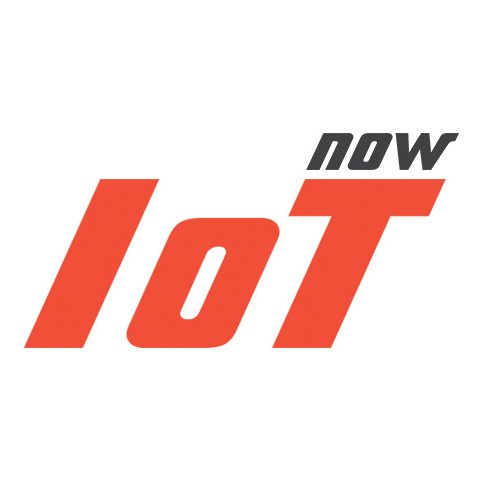
Conversational AI is becoming an essential part of most business plans. As a CMO/CPO, you’ve probably already considered getting a chatbot to manage some aspect of your business. This could be anything ranging from customer support to lead generation to engagement to collecting feedback.
As part of this, you might’ve done a lot of research to learn what chatbots are and what they can do for your business. You’ve most likely zeroed in on one or several pain-points that need a chatbot, and you’re now set to make that final build or buy decision.

Before we begin, here’s a definition of what we mean by the terms “paid chatbot” and “free chatbot”:

Should you go for paid or free bots? This is the million-dollar question every company asks itself before implementing a new service. Below are some questions you need to ask yourself to decide which model is good for your business.
1. Do You Wish to Answer Complex or Simple Queries ?
If you simply need a “chat now” button on your website that users can tap to enter their query, a free chatbot option is fine for you.
Most free, 5-minute chatbot options are a simple way to replace a form option and give you a chat window where users can enter their questions, which are then directed to a human agent. Some options let you configure a few basic questions, which then redirect to a human agent.
With a paid chatbot vendor, you get the full flexibility of a comprehensive bot-building platform that supports complex chat-flows and open-ended questions.
Complex bots not only guide users to complete a certain goal (e.g., buying a flight ticket, getting a test report) but can also switch between contexts if a user sends an unexpected reply. A well-trained bot can handle a majority of the basic questions users ask, thus freeing up your human agents to handle the more complex, nuanced questions.
2. How Much Scale Do You Need to Handle?
Most free bot options will have a limit on the number of users they can handle. These bots aren’t trained with custom data and may not be able to answer in-depth questions about your company or products. This limits the number of questions they can answer on their own.
If your business caters to a large audience base, it makes sense to invest in a paid chatbot that can answer most mundane questions and support many users simultaneously.
Going for an unscalable option, when you need to handle a large crowd, can lead to terrible results and unhappy customers. Anticipate correctly, and go for an option that matches the size of your audience base.
3. Is Multi-platform Support Important to You, or Do You Only Need a Single Platform Presence?
Most free chatbots give you the option to install the bot on a single platform (e.g. Facebook Messenger or your website).
According to this Global Web Index report, the average person has at least seven social media accounts. This makes it necessary for your company to maintain a multi-network presence at all times.
It’s crucial that your company is able to answer time-sensitive queries on many digital platforms 24/7. A fully-fledged paid chatbot platform can ensure that multiple profiles are being monitored constantly.

4. Do You Want to Offer Personalized Answers?
Free chatbots’ generic and limited capabilities with regards to back-end integrations mean that personalized answers are hard to come by. At most, these bots allow the addition of some basic FAQs. However, they can’t be plugged into your existing database.
Paid chatbots are able to contextualize answers and incorporate your CRM and customer-specific data with help from back-end support systems.
Let’s say you’re a bank. Between sending notifications to customers, providing balance information, providing credit report updates and paying bills to help customers with simple transactions, there’s a theoretically infinite number of query combinations.
A strong back-end integration means the chatbot can authenticate these users, fetch data from your database and respond to
5. Do You Want Pre-trained Bots, or Do You Want/Need to Start From Scratch?
A free chatbot won’t offer any pre-trained models specific to your business Applications and requirements. They’re generally off-the-shelf
For example, when KLM Airlines rolled out its Facebook bot, there was a spike in customer queries due to the high adoption of the bot. The bot’s AI learned from various human agents’ actions and now provides suggested replies to human agents. Over 50 percent of the queries are now being answered with the help of AI. The bot’s ability to answer the users’ repetitive inquiries automatically has freed the agents to solve more complex tasks, leading to better user experiences.
Your bot’s NLU capabilities also dictate how well it can understand queries, no matter how they are phrased.
A bot with a strong AI layer backing it can differentiate between “Can you place the order” and “Has my order been placed?”
6. Do You Require In-depth Reports About Customers’ Queries and UX?
Most free chatbots offer limited, basic tools and dashboards for reporting and analysis. Paid chatbots can offer valuable insights and reports across all channels based on user data, intent and other important factors.
An intelligent reporting dashboard (such as the one pictured below) can give you a holistic view of what your customers are saying about your product. This collated real-time information keeps your finger on the pulse of your customer.

For example, imagine you are a fast food brand that has newly launched an item. The best feedback about food is qualitative, where your customer describes the taste and their preferences. This type of information is difficult to collect and analyze; using paper survey forms and in-person interviews are not scalable. A chatbot can not only collect qualitative feedback, but it can also analyze millions of answers to quickly give you a snapshot of what people are talking about, like “amazing sauces” or “not crunchy.”
7. Do You Want a Strong Support or a DIY Solution?
When you opt for a free chatbot solution, you’re completely responsible for deploying, debugging and maintaining your bot. There’s very little hand-holding or technical assistance available if anything goes wrong.
By opting for a paid chatbot solution, your company is given a dedicated solutions team that helps you design, develop and maintain your bot. Some platforms even offer a dedicated POC, responsible for continuously monitoring and training the bot to answer new user queries over time.
8. Do You Have a Failsafe When Your Bot Can’t Answer Correctly?
Simply sending an unhelpful “beyond my scope” message, or worse, repeating the same wrong answer, can lead to bad-mouthing on social media or to losing a customer.
This is why having a human intervention option is an important feature for any bot. By routing complex conversations to human agents, your business ensures sensitive queries are given their due and no customer is left exasperated. Additionally, this lessens the load on your customer service agents, whose time can now be focused on handling complicated queries.
Intelligent human agent routing based on context is a feature very few bot providers offer. It requires an intelligent layer of NLU and an integrated agent chat dashboard alongside your bot.
So, when you evaluate a chatbot vendor, make sure they have a human intervention option.
Finally, Should You Opt for Paid or Free Bots?
This is purely dependent on your business needs and goals.
If you’re an enterprise attempting to solve a complex problem end-to-end—and if you give your customers a value-added service and have the budget to spare—then you should probably opt for a chatbot provider with solid customer support and infrastructure integration teams that can scale





 New Episode
New Episode





 Latest IoT News
Latest IoT News









